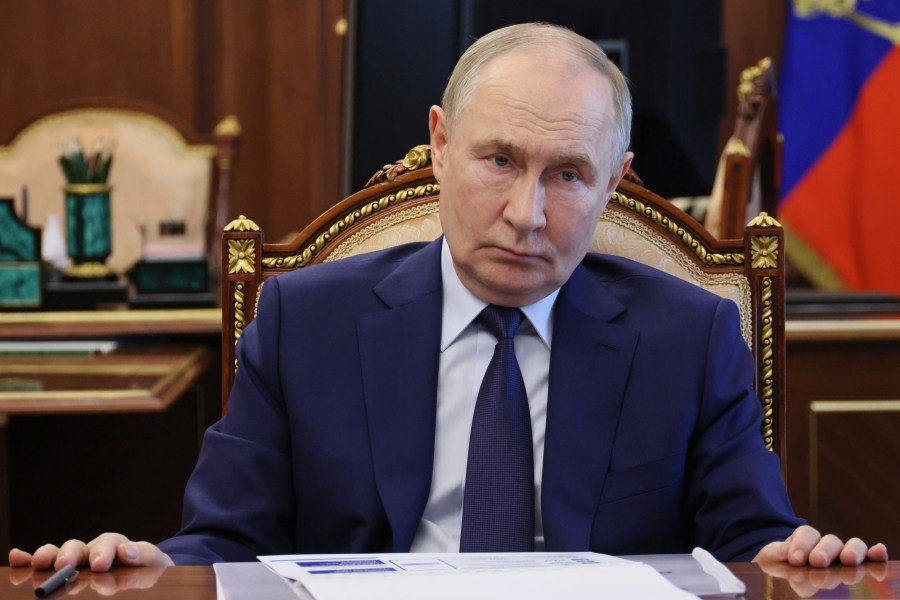
Russia’s economy has proven remarkably resilient, despite years of sanctions and economic statecraft. But that doesn’t mean there aren’t deep cracks in Russia’s unstable economic foundation, with only a thin veneer masking increasingly severe shortages — especially of workers.
Russia is in a desperate labor bind. The country has a shrinking, aging population — a fact it ignores as it sends its young men into the meatgrinder of the war in Ukraine. To generate military manpower, Russia has gotten creative, recruiting criminals out of prisons, North Koreans, and mental health patients. Regardless, the endless need for fresh troops on the front line has taken bodies away from industry just as Russia’s military-industrial needs are expanding rapidly.
Russia now desperately needs to fill jobs on assembly lines that make war materiel, but it has a plan: exploiting the Global South, including its so-called friends.
BRICS members India, Brazil, and South Africa have all been recruitment targets for what appears to be forced labor. Russia issues to their citizens a siren song against which many young women are unable to steel themselves, with devastating results.
For at least two years, Russian company Alabuga Special Economic Zone has been luring young women from developing countries with the promise of good jobs and educational opportunities. When they arrive, they are pressed into drone production. They are made to work with corrosive chemicals for long hours, with restricted communications and few or no rights. The women have faced sexual harassment and seen “deductions” taken from their already meager pay for things like rent.
Moreover, Russian military-industrial sites — including Alabuga facilities — have been subject to Ukrainian strikes, putting the women’s lives at risk — a risk to which they never consented.
The international Forced Labor Convention of 1930 considers forced labor as work “extracted…under the threat of a penalty and for which the person has not offered himself or herself voluntarily.” The United Nations’ protocol on human trafficking includes “recruitment” of workers “by means … of fraud, of deception … to achieve the consent of a person having control over another person, for the purpose of exploitation.” The Alabuga SEZ may be guilty of both violations.
Russia’s Republic of Tatarstan owns and controls Alabuga SEZ. Alabuga also works hand-in-glove with Russia’s diplomats and has assembled Iranian drone components for Russia’s military. Russia’s cultural center in Dar es Salaam, Tanzania, served as a launch pad for a hiring fair. A Russia House in Bangui, Central African Republic, hosted at least one interview with a program recruit. Messaging presents the recruitment initiative as “a revival of Soviet cooperation with African countries and other regions.”
Alabuga also uses partner states’ trusted figures as propaganda megaphones. In August, a South African influencer apologized for promoting the recruitment scheme online.
Educational institutions in Uganda and Burkina Faso have hosted Alabuga recruitment drives; economy-focused civil society organizations in Zambia, Zimbabwe, Cameroon, and Madagascar have met with Alabuga officials; and diplomats from African and Latin American states have visited and some have promoted Alabuga sites.
Alabuga SEZ has targeted 84 countries, prioritizing recruitment in Africa and Latin America. Although some countries have called out Russian labor fraud, it has been too little, too late. South Africa’s warning and investigation, which began in August, does little to help women already taken to these sweatshops.
Russian recruiters also take advantage of economic and political environments which enable labor fraud success. In South Africa, for example, women aged 15 to 34 face a 48 percent unemployment rate — the world’s worst recorded economic inequality — and entrenched political corruption. Russia seizes on this desperation, targeting women rather than men, considering them less combative, easier to control, and less likely to find opportunities at home.
Alabuga SEZ and some affiliated officials and entities are already designated for sanctions by the U.S. That hasn’t stopped them from recruiting workers. To stop the practice, the U.S. must take a more active approach to pulling out the financial roots of this international network. This should include consideration of secondary sanctions on actors outside Russia who aid Moscow’s desperate effort to keep its assembly lines moving — especially those receiving money for their promotional efforts. The U.S. can pair this effort with its broader policy aimed at financially crippling Russia’s war machine.
Beyond financial penalties, the U.S. should shine a light on Russian exploitation and lies, making clear to its BRICS partners and beyond that there are strings attached to Moscow’s friendship.
It is possible to reach potential victims by publicly discussing the threat and identifying malign recruitment efforts on social media, pushing platforms to take posts down. Meta and TikTok community policies prohibit content enabling such exploitation. In the process, the U.S. will remind the Global South that the consequences of Russian aggression do not stop at Ukraine’s borders, or even at Europe’s doorstep.
Angela Howard is a research analyst at the Center on Economic and Financial Power at the Foundation for Defense of Democracies.

